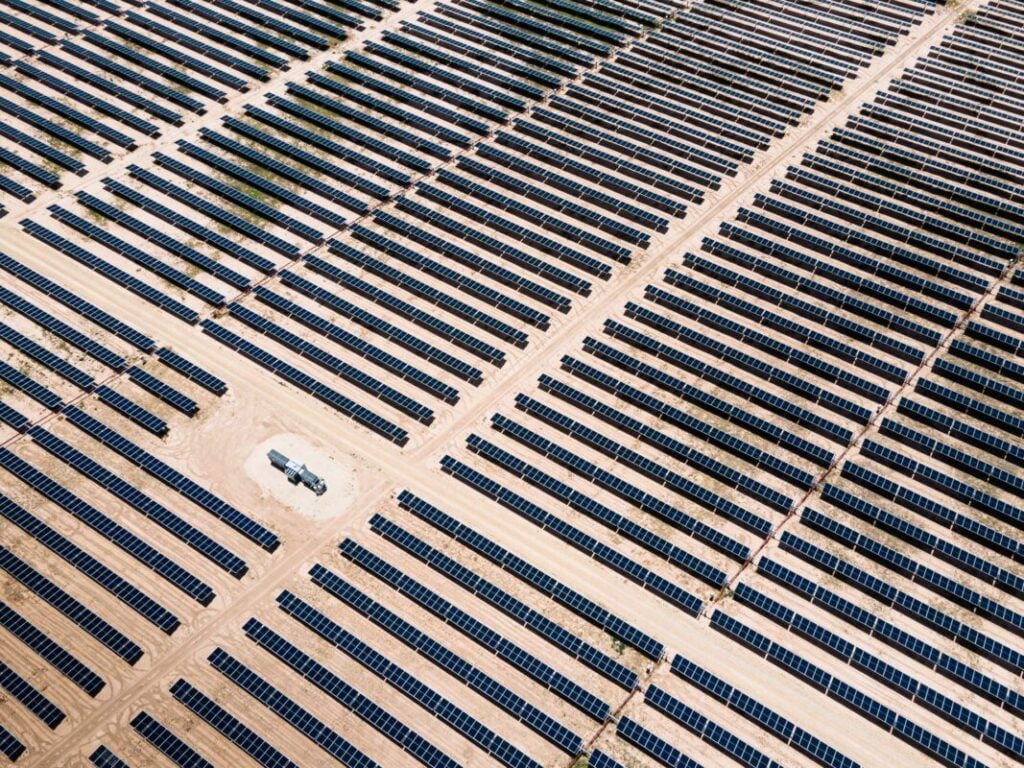
Copenhagen Infrastructure Partners (CIP) has raised over €12 billion (US$13 billion) through its CI V fund for greenfield renewable energy projects.
The Danish energy infrastructure investment firm said it expected the CI V fund to add up to 30GW of renewable energy generation and storage assets to global energy grids. The fund – which builds on four previous iterations – focuses on large-scale, greenfield renewable energy projects in “low-risk OECD countries in Europe, North America and Asia Pacific.”
Try Premium for just $1
- Full premium access for the first month at only $1
- Converts to an annual rate after 30 days unless cancelled
- Cancel anytime during the trial period
Premium Benefits
- Expert industry analysis and interviews
- Digital access to PV Tech Power journal
- Exclusive event discounts
Or get the full Premium subscription right away
Or continue reading this article for free
CIP said the CI V fund has already made six final investment decisions, committing 60% of its funds. It closed the first €5.6 billion (US$6.1 billion) of the CI V fund in July 2023.
The investor claims that the fund will help meet growing electricity demand from AI, digitalisation and the electrification of society with renewables, which it said are the “most cost competitive and scalable” forms of energy in “most markets.”
Jakob Baruël Poulsen, managing partner at CIP said: “Massive structural tailwinds are pushing the energy transition forward. Surging electricity demand, fueled by economic growth, widespread electrification and digitalisation, requires an unprecedented amount of new energy infrastructure capacity to be built.
“At the same time, the fundamentals for renewables are as strong as ever as industrial competitiveness, productivity, and energy resilience are at the centre of political and industrial agendas globally.”
Global headwinds for renewables?
The success of large private financial institutions in the global renewable energy sector may paint an optimistic picture of the energy transition’s future.
Analysis from late last year found that although the global energy transition was gathering pace it faced challenges from global conflicts, financial shocks and geopolitical tensions.
A report from Norwegian consultancy DNV said that lasting economic shocks from the COVID pandemic, Ukraine war and Middle East conflict have had “worldwide ripple effects” on public attitudes towards further climate action and decarbonisation and created “fertile grounds for argumentation, even misinformation, about climate policy and the costs of energy transition being too high.”
DNV also pointed to greater geopolitical tensions over renewable energy component supply, both in the ongoing trade wars over solar and battery technology and the increasing focus on rare earth metals.
The International Energy Agency (IEA) highlighted similar concerns in its World Energy Outlook 2024 report.
In this same period, however, large private investors like CIP have continued to invest heavily in renewable energy assets. As well as CIP, NextEnergy Capital and Brookfield Renewables – two international renewable energy asset owners – have expanded their presence in the renewable energy and solar PV markets. Attention from profit-driven investment funds speaks to the financial case for renewables beyond the political or social headwinds currently facing the energy transition.
CIP also runs funds seeking projects in emerging markets; it launched its US$10 billion Growth Markets Fund for “high-growth, middle-income markets” across Asia, Latin America and EMEA in 2023.






